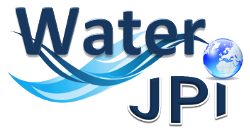| MeProWaRe - Novel methodology for the promotion of treated wastewater reuse for Mediterranean crops improvement |
|
No website is foreseen for this project.
However, updates regarding the project wil be posted on the institutional websites of the partners and on a dedicated facebook page.
Project presentation: MeProWaRe
|
 |
Coordinator: Alfieri Pollice (IRSA) |
Projects Partner and Institution:
Water Research Institute of the National Research Council of Italy - (CNR-IRSA)
International Center for Advanced Mediterranean Agronomic Studies - Mediterranean Agronomic Institute of Bari (CIHEAM-IAMB), Italy
University of Lisboa - Instituto Superior de Agronomia - Linking Landscape, Environment, Agriculture and Food (ISA-LEAF), Portugal
University of Castilla-La Mancha, Spain
|
|
Key words: Treated watewater, reuse, irrigation, stakeholders participation, Mediterranean crops
|
| Abstract:
In the Mediterranean countries, there is an urgent need to develop novel methodologies to build trust among the different water users in terms of economic and environmental advantages, and involve all stakeholders through raising awareness of the benefits of treated wastewater reuse practices. The general objective of this project is to set the scene for a better understanding of determinants, dynamics and mechanisms of efficient water and nutrient capture, partitioning and use, and relate these basic processes to overall system resource use efficiency in plants and crops. This will be achieved by developing an innovative methodology for promoting the implementation of reuse practices in Mediterranean countries. The key idea is to demonstrate the effectiveness and suitability as well as the economic profitability of using treated wastewater for the irrigation of typical crops of this area (olive and grapes), and enhance the involvement of stakeholders through direct participation to the activities and disseminate the results within the users’ society.
Specific objectives can be listed as follows:
Demonstrate the positive effects of treated wastewater reuse for irrigation, also in combination with other local sources and according to different agricultural practices, in terms of quality and yield of the selected cultures; Show the suitability of specific modelling tools for the optimization of water and nutrient needs in agricultural practices, along with the possible assessment of pollutants’ transfer through irrigation; Relate the different phenological stages of the tested crops to their needs in terms of water and nutrients and to the nutrients brought by the treated wastewater; Provide support to treated wastewater pricing and cost allocation by integrating consolidated cost/benefit evaluations methods with innovative approaches aiming to assess the actual impacts of cost allocation strategies on different groups of stakeholders; Identify and analyse the main barriers hampering the effective communication between the scientific communities and the main stakeholders interested/involved in the reuse of treated wastewater for irrigation; Develop innovative information sharing and communication strategy capable to remove prejudices and change the attitude of stakeholders towards irrigation with treated wastewater by their direct involvement in the project’s activities; Contribute to the compliance of the national regulations to the European legislations about the management of natural resources.
|
Project structure:
WP 1 Water quality monitoring
WP 2 Modeling tools
WP 3 Irrigation and agronomic practices
WP 4 Stakeholders' participation and socio-economic evaluations
WP 5 Project management
|
Implementation:
Experimental activities will be performed at three demonstration sites located in Italy (Acquaviva delle Fonti, Apulia, South-East Italy), Spain (Castilla-La Mancha, Andalucía) and Portugal (ISA demo sites, Lisbon), where the target cultures (olive trees and grapevine plants) will be monitored during irrigation with treated wastewater and conventional sources.
|
Outcome/deliverables:
- A methodology for adapting the irrigation water characteristics to the crop needs by blending the treated effluents with conventional water sources;
- Modeling tools to improve the knowledge of evapotranspiration, nutrient requirements, and possible migration of pollutants through the soi;
- Reuse technical guidelines or best practices manual for olives and grapevines farmers;
- New quality standards for treated wastewater to be used for irrigation of specific cultures;
- Recommendations to standardize the legislation regarding the use of treated wastewater.
Deliverables:
- D. 1.1. Water monitoring protocol
- D. 1.2. Water quality characterization
- D. 2.1. Report on calibration results of SIMDual Kc, RZWQM and HYDRUS models
- D. 2.2. Report on validation results of SIMDual Kc, RZWQM and HYDRUS models
- D. 3.1. Report on irrigation tests and vegetation responses
- D. 3.2. Report of the results of the agronomic monitoring
- D. 4.1. Stakeholders' acceptance of water reuse
- D. 4.2. Economic and environmental impacts of water reuse
- D. 4.3. Communication and information strategy for stakeholders' acceptance
- D. 5.1. Consortium agreement
- D. 5.2. Mid-term scientific and financial prohect report
- D. 5.3. Final scientific and finanacial scientific report
|
|
References coordinator and leaders of each WP:
Dr. Alfieri Pollice
Leaders of WP:
WP1: Dr. Pompilio Vergine (CNR-IRSA)
WP2: Dr. Gonçalo Rodrigues (ISA-LEAF)
WP3: Prof. Jorge De Las Heras (UCLM)
WP4: Dr. Raffaele Giordano (CNR-IRSA)
WP5: Dr. Alfieri Pollice (CNR-IRSA)
Quality control manager: Dr. Nicola Lamaddalena (CIHEAM-IAMB)
|
|
Contact Point for Communication/Dissemination activities:
Dr. Ramy Saliba (CNR-IRSA/CIHEAM-IAMB)
|
Contact Point for Open Data/Open Access activities:
Dr. Ramy Saliba (CNR-IRSA/CIHEAM-IAMB) |
|
Results of the project: Data and resources
|

